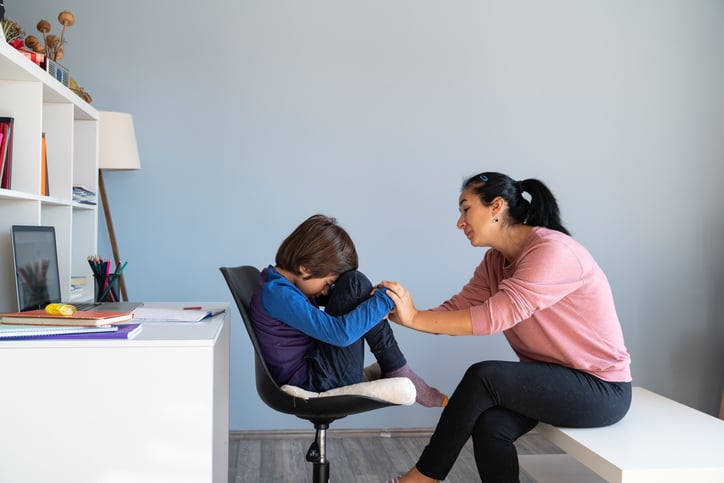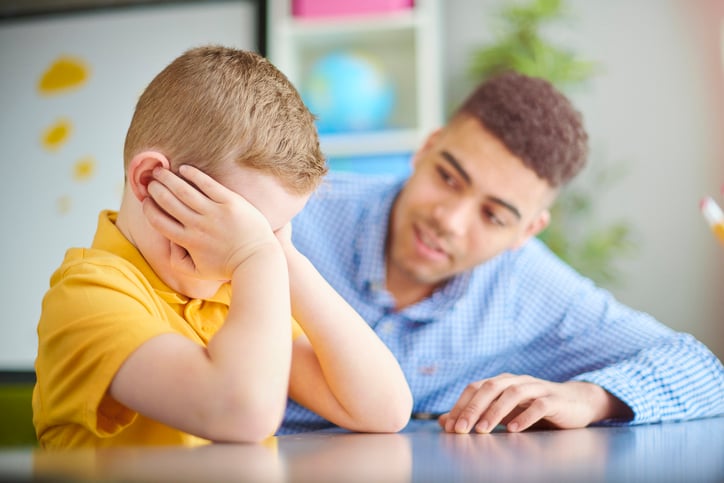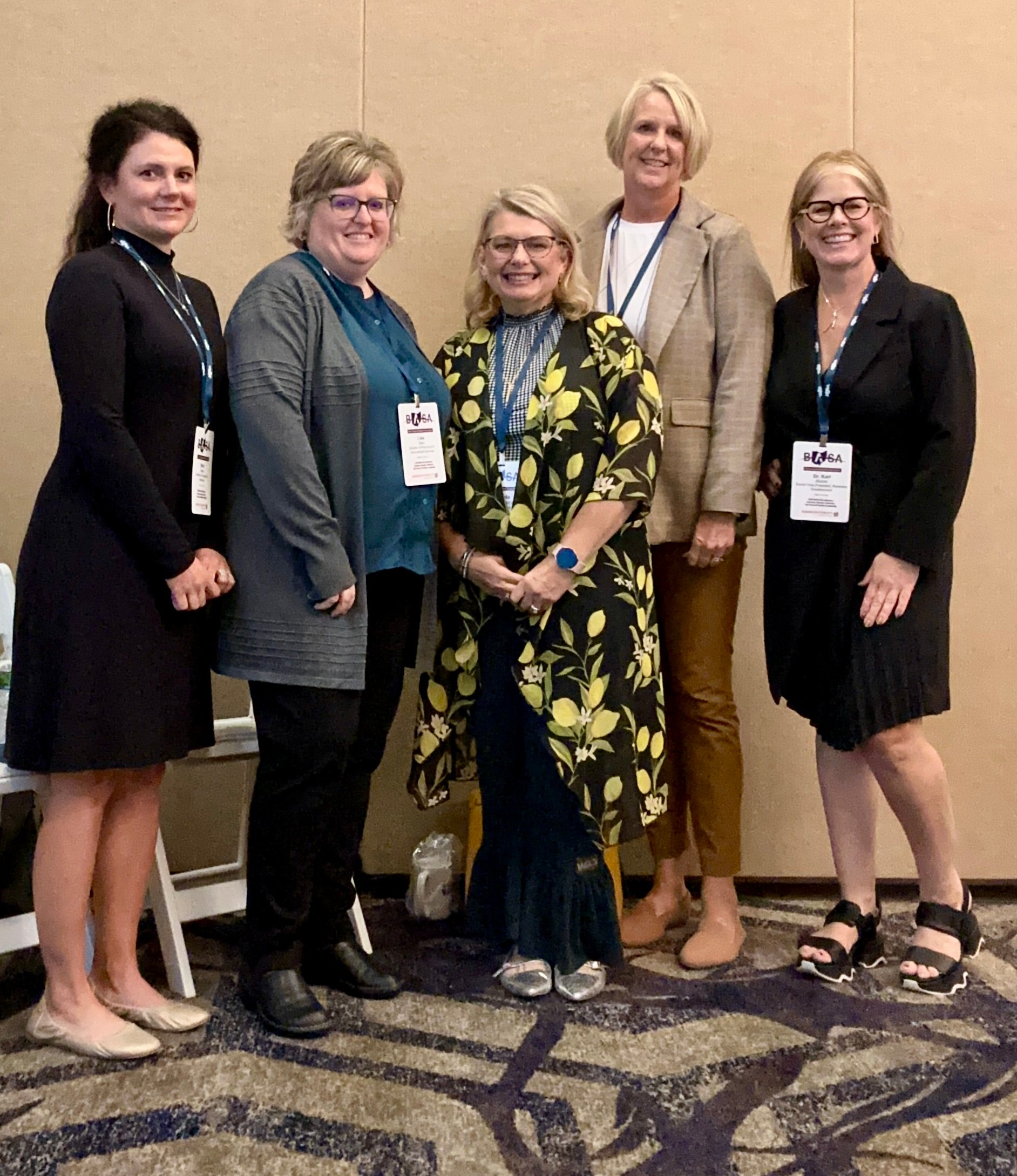How Autism and/or ADHD Can Destroy Motivation
Why Is Motivation Different for Autistic Individuals?
Motivation is something we all struggle with, occasionally. Most people can eventually pull through and do what they need to do. For some autistic and/or ADHD kids, motivation affects them differently. At a younger age, autistic and/or ADHD kids might excel at things that other kids have trouble picking up. Their ability to notice patterns in things allows them to figure out the basics of elementary school and instead of learning as neurotypical kids do -- learning studying skills and organization skills -- they instead start to figure out patterns and excel at those.
For example, in elementary school, you might get a worksheet every day to complete in class and then another to do at home. Let’s say it’s a series of basic math. You’ll see neurotypical kids figuring out each problem, and asking questions along the way. But for some kids, you’ll notice they finish their schoolwork and homework before the end of class. They’ve figured out a pattern and solved it before other kids. For example, they might get those worksheets in school and the first thing they looked for was problems that were repeated questions on the page. If there was a problem like 4+2, I would look for 2+4 or 4+2 anywhere else on the page and just write the answer for all of those at once.
This is great! Some kids will even get labeled “gifted” for this ability to pick things up more quickly. However, something interesting is going on in the brain when this happens. The D2 receptors (dopamine receptors) get altered. The D2 receptors are responsible for optimal decision-making and feedback reward history. So, these kids get good grades for a while, and they don’t have to try too hard. So the D2 receptors are seeing this feedback reward history and it’s positive overall.
However, at some point, things start to get harder. For some kids this is middle school/high school, for others it’s college. But things aren’t as simple as figuring out an impromptu pattern while doing a test when you’re transitioning from arithmetic to calculus. And for the neurotypical kids who learned early on good studying habits, organization, notetaking, and asking questions they suddenly seem to be doing things like this easier than these gifted autistic and/or ADHD kids.
Then the D2 receptors start to pick up on different feedback reward patterns. They see a failure and negatively relate learning sensitivity to negative vs. positive feedback. This causes dopamine receptor impairment. In other words, the brain sees a task, evaluates the situation, and can find similarities to a past (failed) situation, and it determines that a failure is inevitable, so don’t try. This applies not just to educational settings, but to daily life as well. For example, the brain might see a failure when there is a miscommunication, so avoidance of various social situations might occur.

This can lead to self-hatred and shame. The negative self-talk leads to a lack of motivation, which is seen as laziness by others. What happens with gifted neurodiverse kids is they start ahead, like everyone else is walking and they are in a car. Their car has flat tires but it is still going faster than everyone walking. Then suddenly everyone starts getting cars and the gifted neurodiverse kids are still driving around in a car with flat tires. They end up doing ten times more work just to get simple things done throughout the day as they watch their peers fly past them. It’s not that they are incapable of reaching their destination, it’s that they are given a car with flat tires.
How to Combat a Lack of Motivation in Autistic Individuals
How we begin to combat lack of motivation with our kids starts with our words. Lazy is a word to stay away from. It is negative, and negative talk doesn’t suddenly lead to positive results. Your kid knows they aren’t doing what they need to and it is most likely causing a lot of guilt if they show that or not. Remember that it is no one's dream to fall short, they want to succeed. Self-respect is a learned and conditioned skill. This is evidenced by a study that showed a significant amount of people with Borderline Personality Disorder (BPD) going into remission when in a stable relationship for 2 or more years. This shows that being treated with respect and compassion changes the way our brain works.

Steps to change start with:
1. Adopting the growth mindset.
2. Encouraging self-compassion. Instead of finding wrong things, focus on what they are doing well and feed that.
3. Allowing and teaching self-care. This could take on the form of encouraging them to pursue hobbies, do things they enjoy, and relax for a while, reducing stress. This requires breaking down the irrational mind. What I mean by that is our mind is telling us, “If we relax nothing will get done.” But you have to think of it like trying to take pictures with dirt smudged on your lens. You could keep taking a bunch of pictures, but they aren’t going to turn out good and you’re going to end up more stressed in the end because you just wasted more time than if you had just stopped and cleaned the lens.
4. Detaching self from outcomes and choices. You wouldn’t assume yourself to be a horrible person from a mistake you made. You know what happened that caused that mistake, and you know your sense of self isn’t based on the mistake. This is difficult to extend to others however because we are taught to judge people from their choices: If someone is overweight we assume they are lazy and just need to go to the gym. But there is so much more to that person and their value than just their weight and how they got there. We can learn so much insight and gain perspective on people by choosing compassion over judgment. This is especially important to practice with our kids, compassion and understanding go so much further than frustration and forcing them to do things.

Understanding why motivation can play out so differently in autistic and/or ADHD kids is the first step. Helping your child or student embrace a growth mindset, encouraging self-care and self-compassion, and moving the needle on our outlook to embrace compassion over judgment when people make poor choices or experience negative outcomes can go a long way toward helping your child or student grow and develop.
We hope you enjoyed the information in this article. STAGES® Learning also offers free downloadable resources to support teaching and learning with autistic individuals. Start with our free Picture Noun Cards and see our collection of other downloadable resources here!

Tori Lehinger
Tori Lehinger is from Spokane, WA and an autistic mom of twins who are in the process of getting diagnosed. She is a content creator for Stages Learning. After graduating on the presidential honor roll as an undergraduate she is working on her masters in clinical psychology on the National Honors Society. She’s indigenous and uses nature based therapeutic techniques in her education practices and everyday life. This style addresses the dissociation between humans and their environment, encourages sensory awareness, fosters wonderment for education, and helps navigate risks in play.




